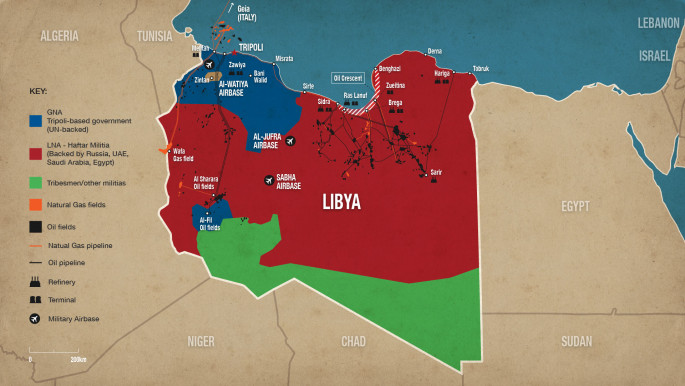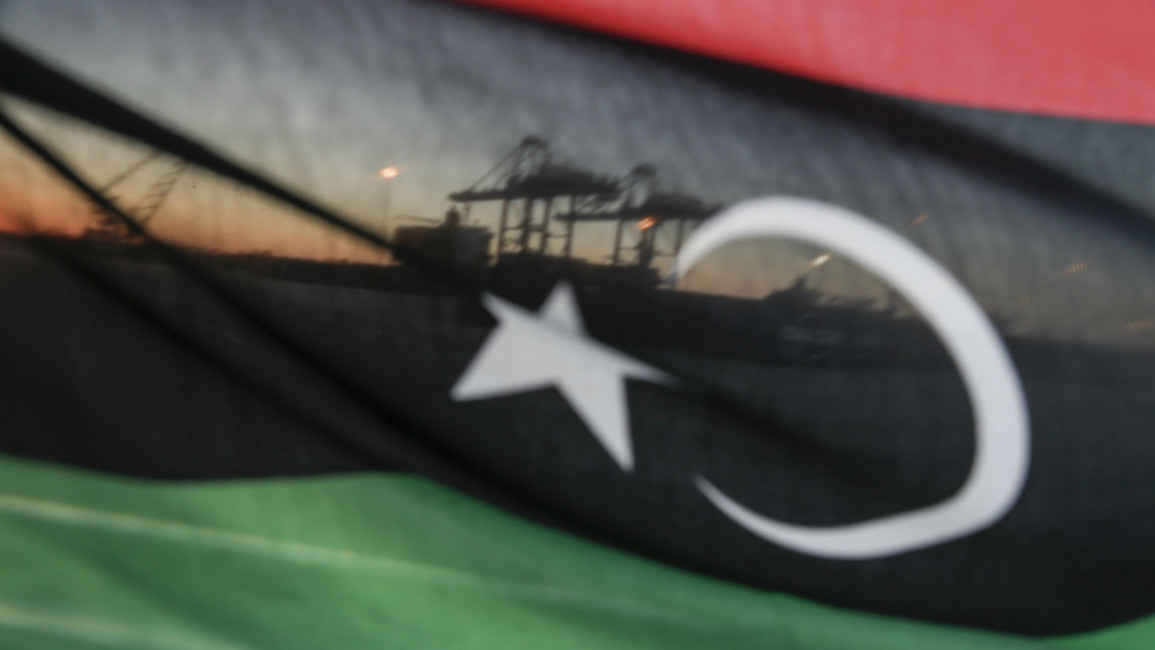Libya’s rival factions exchange prisoners as Turkish defence minister visits
Libya’s rival sides kicked off a UN-brokered prisoner exchange, United Nations and Libyan officials said on Saturday, as part of a preliminary ceasefire agreement between warring Libyan factions.
The exchange of a first batch of prisoners, supervised by a joint military committee, took place on Friday in the southwestern village of al-Shwayrif, according to the UN Support Mission in Libya, or UNSMIL.
Libya is split between a UN-recognized government in the capital, Tripoli, and rival authorities allied with warlord Khalifa Haftar, based in the country's east. The two sides also have the support of an array of local militias as well as regional and foreign powers.
The North African nation, which had suffered four decades of dictatorship under Muammar Gaddafi, has been in chaos since 2014 when Haftar, a former army officer, launched “Operation Dignity” against rival militias in the city of Benghazi.
Haftar’s war culminated in an offensive to try and capture Tripoli, a campaign that collapsed after Turkey stepped up its military support of the UN-supported government. Turkey deployed hundreds of its troops, as well as Syrian fighters, to back up its Libyan allies.
The two sides signed a nationwide, UN-brokered cease-fire deal in October that included an exchange of all war prisoners.
Read also: As Libyan oil flows resume so does a feud over revenues
UNSMIL announced the prisoner exchange without giving details on how many prisoners were freed for each side. It called for both sides to speed up the implementation of the cease-fire deal, including the exchange of all prisoners.
Fathi Bashaga, the interior minister of the UN-recognized government, hailed the exchange in a tweet, attaching photos of released prisoners.
The Tripoli Protection Unit, a militia allied with the capital-based government, also posted a 31-second video apparently showing the prisoner exchange, with an official reading the names of those released.
The cease-fire deal also included the departure of foreign forces and mercenaries from Libya within three months.
However, no progress was announced on the issue of foreign forces and mercenaries two months after they inked the deal
Thousands of foreign fighters, including Russians, Syrians, Sudanese and Chadians, have been brought to Libya by both sides, according to UN experts.
Turkish Defence Minister visits
Meanwhile, Turkey’s Defence Minister Hulusi Akar, the military chief of staff Yasar Guler and other military commanders arrived in Tripoli on Saturday, where they were meeting with their allies in the UN-supported government, according to the Turkish defence ministry.
They will visit Turkish troops stationed in western Libya, according to the ministry.
The unannounced visit has underscored the close ties between the Tripoli government and Ankara. Akar and Guler also visited Libya in July.
Saturday’s visit by Akar and other military officials came after the Turkish parliament on Tuesday extended for 18 months a law that allows the deployment of Turkish troops to Libya.
The Turkish decision comes despite the cease-fire deal that envisioned the departure of foreign forces and mercenaries within three months.
The ceasefire deal also called for “military deals on training inside Libya” to be frozen and for foreign trainees to leave the country. It did not name a particular country but apparently referred to Turkey, which has struck military and disputed maritime deals last year with the Tripoli administration.
Follow us on Facebook, Twitter and Instagram to stay connected



